After a hurricane, the sun usually comes out resulting in sparkling skies for the clean-up. As the East Coast attempts to clean up and dry off from a storm that could have been much worse (but was still pretty bad in spots) we wake up to a fairly epochal week in the history of comics. Because the internet wasn’t around, we didn’t know that the 1980 arrival of SUPERBOY SPECTACULAR or DAZZLER #1 — the first comics produced by DC and Marvel that were direct market-only — would mark the beginning of a whole new era for the comics industry, and — despite the protestations of imminent death at every turn — usher in a era of undreamed of creative fertility and energy.
Wednesday at 12:01 am the new era begins. Not the era of the New 52 — despite any declarations to the contrary, that’s really business as usual, just jump started in the manner of a car battery. No, it’s the era of digital comics. While everyone has been transfixed over whether GREEN LANTERN by Geoff Johns, Doug Mahnke and Christian Alamy will be better than GREEN LANTERN by Geoff Johns, Doug Mahnke and Christian Alamy; or how Tony Daniels’ DETECTIVE COMICS is going to vastly improve on his Batman comics, the real revolution has quietly been dawning on retailers and readers: DC’s decision to go with simultaneous digital and print release of their comics.
Everyone has been feeling the end coming, even if only as an instinctive notice of the drop in air pressure before a storm. Sometimes, it was a thinly-veiled metaphor for real-life happenings. Other times it was an obsession with grisly death — as Chris Eckert points out, the FLASHPOINT miniseries leading up to the DC reboot was a gorefest that would make a Grand Guignol play look like My Little Pony.
Regardless, it has one thing in common with those other stories. DEATH. GLORIOUS DEATH. Given that everything is going to be returned to The New Normal at the end of it, DC has gone hog wild with killing people off in Flashpoint. It’s not just “shocking” death scenes for beloved intellectual property: the Flashpoint Earth got seriously depopulated. It’d be Ra’s al Ghul’s dream, if he weren’t a little kid who only appears in one panel of World of Flashpoint for some reason. Forget boring decapitation of superheroines, Flashpoint has it all!
The whole list is way too long to reprint, but here’s just the Cs
Captain Marvel (Billy Batson): Depowered by Enchantress, stabbed through the heart by Wonder Woman
Catman: Killed by Grodd, skull and spine ripped out and paraded around
Cheetah: Killed and possibly eaten by Etrigan the Demon
Citizen Cold: Killed by Iris West
Clayface: Dragged into an ocean trench by Aquaman, presumably dies after having his skull collapse and eyes pop out from the water pressure
Cluemaster: Killed when Plastic Man bursts out of his throat
Cockroach: Recruited by Canterbury Cricket for his “Ambush Bugs” team, killed by Amazons on first mission
Congorilla: Beaten to death, head ripped off by Grodd during a sparring match
Count Vertigo: Pierced through the heart by an Amazon’s spear
And just in case you think this orgy of death is just a passing fad, just today the DC Blog is teasingThe New 52: “Wait ‘til they watch us kill him.”
While the contents of the comics were going out with the kind of savage frenzy that usually accompanies the end of the world, retailers were waking up to the digital reality. Retailer Brian Hibbs always shows up to correct me whenever I make a bad attempt to summarize his thoughts so I say just go read the damn thing. It’s an essay on Hibbs’ demoralizing realization that the new terms for digital comics sales via comiXology were not anything he could sign due to several onerous clauses, and that DC was at least partly to blame:
DC’s FAQ was very vague on the exact details: For instance, using language about “affiliate programs” at one point, but then also talking about “dedicated store fronts.” We were promised more hard information on or before July 20th. Almost an entire additional month passed, however, and details were finally released on August 17th for an August 31st launch. Yes, just fourteen days warning, if you want to be part of the launch of this program — not only to mechanically make it happen, but to read through and parse the (heavy) details.
Here’s what you really need to understand to get my core rage and frustration about how this is unfolding: Direct Market comic book retailers are DC’s customers. Even though Diamond is the one who facilitates the pulling and packing of books, I do not buy DC comics from Diamond — Diamond is “merely” the sales agent in the transaction. I am the customer, I am the retailer.
Hibbs’ discomfort with the comiXology terms is shared by many retailers — only a hundred have signed up to sell digital comics through a storefront on their websites thus far. Notably the Diamond system which is going to be rolling out a bit later this year, with fulfillment via iVerse, is a bit different, with stores selling codes. It’s much more like Diamond’s traditional method of selling comics. It will be interesting to see how this is received now that the comiXology model has been rejected, at least philosophically.
But Hibbs smells the storm of digital coming — and from DC, the one publisher that has always stood by the direct sales market come hell or high water. Perhaps I am reading too much into this (and again, I know Brian will be right along to correct me) but I sense a feeling of betrayal in this column. The retailer’s friend is going over to the other side.
It’s a side whose potential impact Hibbs is not impressed by — he feels that day-and-date will not expand the audience for the periodical comics that form his bread and butter:
And that’s why I think that, largely, a significant portion of the day-and-date audience will merely be conversions from print readers, rather than entirely new readers. There’s a bunch of people that digital is great for: people overseas, or, say, in the military, people with New York-sized apartments, people who don’t want to drive an hour to get to their “local” shop, or people who are served by local stores that (illogically!) won’t stock the comics they want to buy, and so on.. Those are just some of the people who will love digital, but that isn’t entirely all new dollars; and if they’re not new dollars, that probably means they’re being siphoned out of the existing print market — a market where it is increasingly hard to muster a profitable print run in the first place.
The Hibbsian view is backed up by Tom Spurgeon, in his analysis of the piece
The second half of Hibbs’ essay, where he doubts that digital in and of itself will drive anyone to a comics shop, also seems rational to me. I would add a few things. Hibbs seems to get to his conclusions by characterizing the likely audiences and casting aspersions on the exposure model as a general theory. I think he’s right that exposure as a driver across a product group tends to be a dubious proposition, but I think a potentially more fundamental key is that the digital experience is going to be different than the comics shop experience to the point that there’s no reason for anyone to link them on some sort of continuum. Buying stuff on-line has never driven me to a shop; it’s replaced a kind of buying or maybe supplemented a kind of consumption — and that’s with a consumer good that’s exactly the same.
Right off the bat, I think Tom and Brian are wrong on this account — I know people who religiously peruse online stores in anticipation of the day they can see the real thing — I’m one of them. Granted, I live in a vertical city where getting out of the house is always a bonus. Also, I’m a girl and I love to shop. So my experience is far from universal, but the relationship between online and in-store is a complex one. For tangible goods, like clothes and toys, the online catalog is definitely an advertisement for the store. Is a comic book a tangible good? Not any more — it’s a pamphlet, a floppy, a loss leader. But books are still considered both decorative items and entertainment — tangible.
Among publishers who have gone aggressively into digital comics, there is much anecdotal evidence that digital exposure has actually increased print sales. Analysts are also fond of pointing out the Wimpy Kid Paradox — the books are available in their entirety online right now, but the books are some of the best selling kids books of the decade. The whole argument that digital can only steal smacks strongly to me of the old “this is going to kill comics!” alarm bells over previous revolutions. Hey, I could be wrong — maybe any new readers will be offset by those who want to switch to digital or digital distribution will only siphon off people in the short term. But I think it’s an overly gloomy forecast.
Yet, looking at the long-term forecast, I can understand the gloom. While housebound due to my hurricane vacation, I played around with my mom’s iPad — when I could steal it away from her. This is the sexiest, shiniest platform yet for contemporary comics. Quite simply, comics are colored on Macs and no matter what they tell you, they are calibrated for digital display — colors that look like shit on paper are vibrant and dimensional on the iPad. The pages pop and shimmer.
But a crappy comic is still a crappy comic whether on paper or retinal display. Stories that connect and entertain will flourish in either format. The Marvel and DC zombies who walk into their stores every Wednesday to sate their numbed, overloaded senses are dying off. Rick Grimes is picking them off one by one.
The next era of comics will be spearheaded by stories/experiences that are digital in nature. Just like everything else in our culture. The iPad is currently an expensive gadget for upscale households, but the iPod was once the same thing. Now it’s a has-been. So while I think Hibbs is wrong to dismiss the potential for a crossover audience in the short term, he’s right to feel the cold snap blowing in.
I really really want comics shops to be around as long as I am and long after. I love my locals, and the many retailers who have nurtured and sustained the comics business. DC made the decision that embracing the future was the only way to be a part of it. I’m optimistic that the comics retailing community will be able to find a way to do the same, even if the way forward isn’t immediately visible.


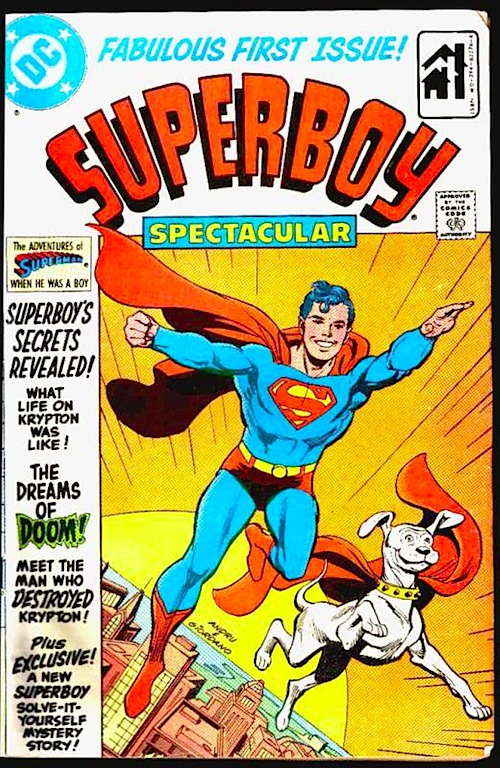
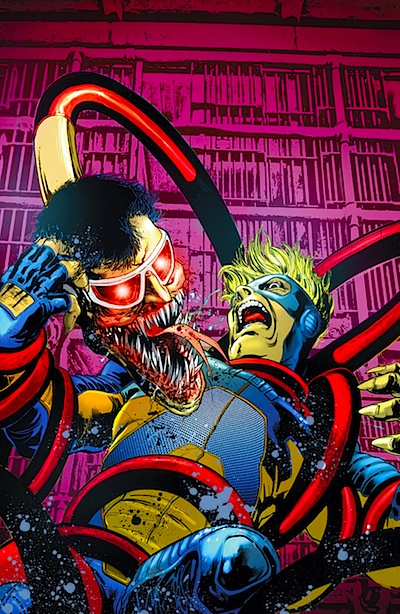
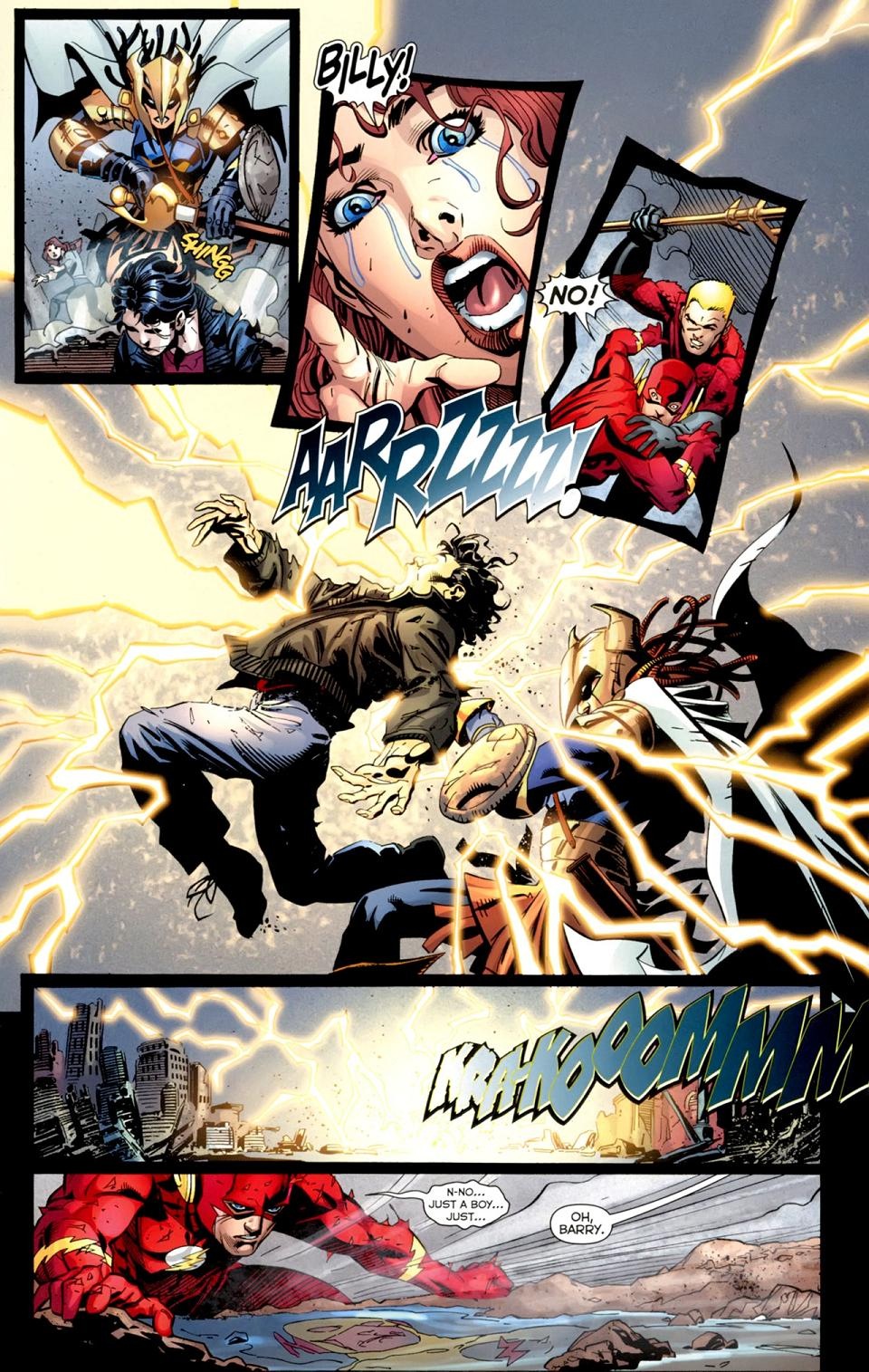
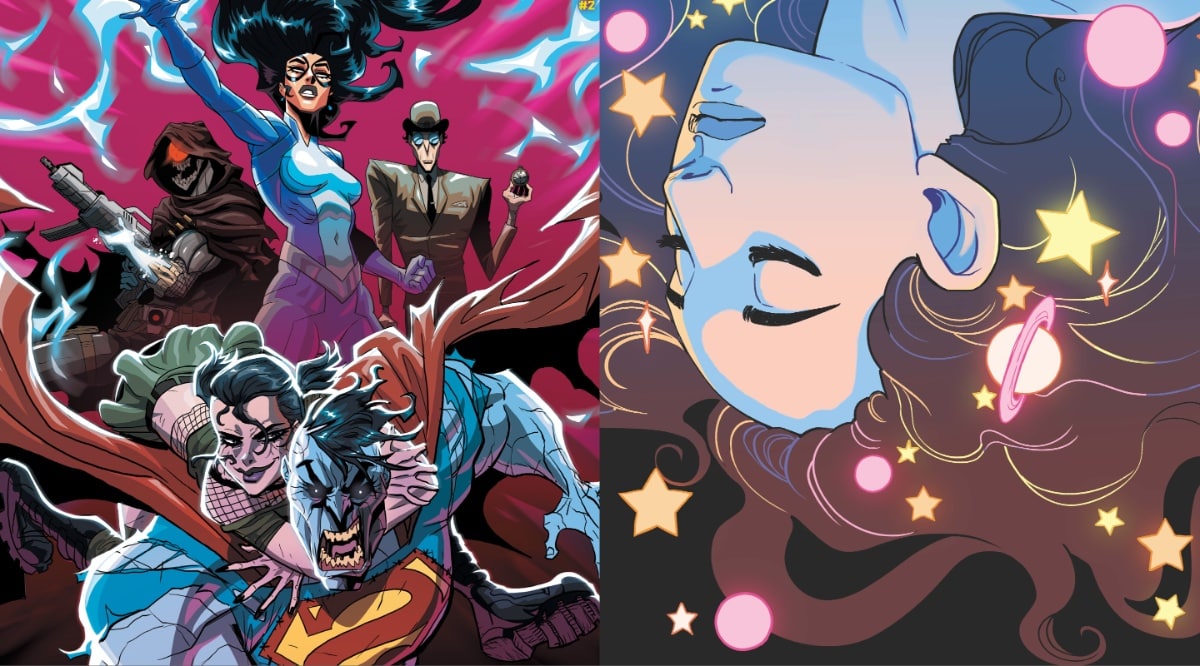
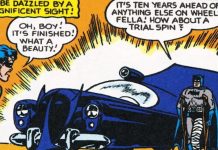
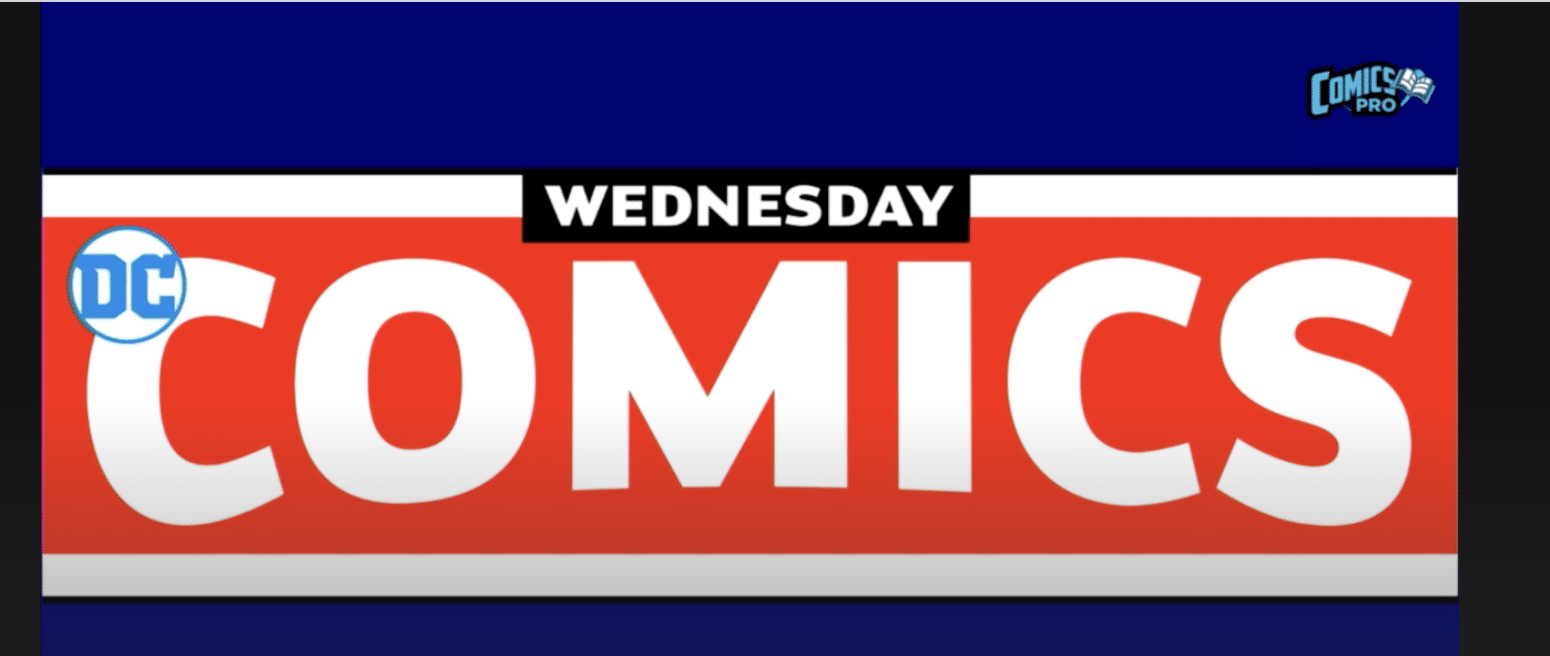



“For tangible goods, like clothes and toys, the online catalog is definitely an advertisement for the store.”
This is changing, the model that seems to be developing in the UK, is that you order the clothes online and if they don’t fit, you simply drop them off at the retailer or post them back. Most UK retail clothes stores are seeing massive increases while the high street seems static.
One puzzling fact about the digital format (which I don’t know if it’s been brought up or not) is ownership. A physical artifact can be resold, can the same be said (or even done) with a digital copy?
I have no corrections on any motivation you’ve ascribed to me, Ace.
I quibble, smidgey, with some of your last few paras, but I’m swamped right now, and it will be evening, earliest that I can write anything more…
-B
One puzzling fact about the digital format (which I don’t know if it’s been brought up or not) is ownership. A physical artifact can be resold, can the same be said (or even done) with a digital copy?
Nope. But anyone trying to unload comic books of a recent vintage lately can probably tell you that reselling them is pretty much pointless, too, with rare exceptions like early issues of the Walking Dead.
I dunno. I think the direct market, local store is awesome in theory but usually awful in execution. The only city I’ve lived in I can say has “good” stores is Chicago.
I definitely agree with Hibbs’s opinion that there aren’t millions of potential buyers out there dying to purchase comics digitally. I think the majority of the digital sales are going to come from people who buy physical books and want to switch to digital for some reason.
Speaking purely anecdotally, I decided I’m going to buy a few DC comics from Comixology. I don’t buy superhero comics, but I thought it would be fun to try. I’d rather buy them digitally than have physical copies I’d just throw away.
Cue Bob Dylan singing “The Times They Are A-Changin'”…
As an iPad owner, I can verify that comics colored with modern CG techniques definitely pop in a digital format. The idea of people who live in small towns or rural areas without convenient access to a friendly neighborhood comic shop becoming able to download new comics with the tap of their finger is The Future whether we’re ready for it or not.
As much as retailers and old-school traditionalists are understandably unhappy about DC embracing the format, the market is already shifting towards it. If you had told my 10-year-old self in 1979 in the small town of Medina, Ohio that one day he’d be able to download comics onto a tablet reader with just a few taps on the screen, his head would explode. And if you told my 20-year-old self in 1989, stuck at college with no comic shops nearby, the same thing HIS head would explode.
The computer replaced the typewriter, the iPod replaced the Walkman, and now digital comics are starting to replace traditional comics. Welcome to the evolution.
In my case, I buy comics at the local shop partly because I want to support the shop. The owner is a nice guy, he likes what he sells — those qualities affect me. I did the same thing when I owned an Atari ST computer: bought software at the local shop. I have an AVENGERS DVD which could make all my paper copies redundant, but I haven’t even considered getting rid of them. My sisters have a couple of dozen paperback romantic mysteries by Emilie Loring that are like heirlooms; they don’t read the books, but nobody wants to get rid of them.
If my local shop closed, I’d probably stop buying comics. Going to the shop is too integral to the process.
SRS
Interesting… you use the bookstore edition of “Superboy Spectacular” (which seems to have lasted only one issue).
Especially a comicbook which was priced at $1.00 for 68 pages.
According to GCD:
“This was specially commissioned by a school system and distributed exclusively through comic shops as DC’s first direct sales only experiment.” (That’s a Random House ISBN.)
—
As for Flashpoint, why is it that every “What If” storyline is filled with fan porn and is so negative?
The recent “Prince” two-parter in JSA All-Stars… that was a nice way to deal with alternate realities! Two. Issues.
(And yes, I’m reading Flashpoint, just to see where it all ends. To me, DC lost me when they didn’t make Batman, owner of Gotham casinos, into a Howard Hughes-like recluse. (Then he could fight crime while avoiding the millionaire spotlight.) But I’m sure the Hanged Man will show up and explain how it all ends…)
The interesting thoughts for me are that if Dc Entertainment does the obvious thing and creates a VERTIGO App for the more modern, and sophisticated auidence…well it might just replace the low-print run “floppys” and leave the collected edition “books” as the physical must-have edition.
I don’t see that as such a bad turn of events. The slim books are so low in price that most retail chain stores don’t see where they will make a profit in their price-point, and so they don’t carry them.
But if there is no cheap entry point to try these things then entire generations just are lost. Which is what I feel has already happened.
I was mortified recently when I tried to get my young girls to try reading some comics. It was a revelation that they weren’t interested in ANY all ages “floppys”. What they wanted was the familiar and the comfortable of animated movies as comics. My 4 year-old preferred the Simpsons to any book that might be for her age group. She out right refused Powrer-Puff Girls and any Veronica and Betty titles, but the Simpsons was familiar and she liked that.
The few great hits were BOOM’s The Muppet Show, Scooby-Doo, and any Disney girl-themed comics. That’s an incredibly LARGE and hidden market. Wish that our new DISNEY / MARVEL mega-entertainment giant realized this and started those engines. It would be hugely cost-effective to try this as a new DIGITAL launch of those properties.
If only someone would listen…
When this plan was first announced, I went into high dudgeon mode and wrote the following:
“As I see the situation developing at DC, very soon, a small, but not insignificant number of comics readers will stop reading DC Comics and withdraw their discretionary income from comics shops. Very soon, a small, but not insignificant number of comics readers will stop reading paper comics and start reading them online instead. Very soon, a small, but not insignificant number of comics readers will stop buying paper comics and download them illegally online (as is obviously already happening). Very soon, a small, but not insignificant number of young people will follow the lead of their friends and start reading about the heroes they’ve seen in the movies – do I really need to say it? – exclusively using online downloads. And also very soon, a small, and entirely insignificant number of non-comics readers will see that “Superman is new!” and run into their local comics shop to start a regular buying habit of purchasing and reading the ongoing tales of hyper-muscled men and women in tights beating each other up.
Call me skeptical.”
I wrote quite a bit more than that, actually, but I’ve since calmed down and spoken to a couple of the local comic shops who aren’t panicking and think their customers will pretty much retain their purchasing habits. I don’t know how they can be so sure, their margins already eroding for years now. Granted change must come, and it was rolling downhill anyway, but can we at least acknowledge that DC is to some extent gambling with the fate of the industry? Is anyone prepared for the potential failure of their scheme? Does anyone actually know how close to the bone most comic shops are these days?
I also haven’t read a single word about how this change may or may not effect publishers other than Marvel and DC.
I have to agree whole heartedly with your article. I bought my first comic book online last week and read it on my computer. I have to admit I was very nervous, apprehensive, and excited all at the same time. At first, I felt the pangs of not beings able to touch it, or store it my book pile. However, reading it was just as much fun as ever, and has enhanced my desires to purchase an IPad, sooner than I had ever planned.
I will say that as much as I still love reading comic books, I am getting very tired of collecting them, and all the effort that goes into that endeavor.( Bags and boards, and boxes) The digital concept just might free me to continue to read and enjoy them for as long as I can hold a pad.
Also I agree with Earth-2 Chad, comic books today have returned to the status of a throw away form of entertainment, abet quite expensive, but there is virtually little or no re-sell market for the average book today. I have an old(25 years) friend that deals in comic book re-selling and more recently has had to turn down deals from other retailers trying to wholesale books for prices such as $10.00 per long box, for quantities of 25 or 50 boxes, because he simply can’t re-sell them. Books, that as recent as five years ago would sell for $5.00 or $10.00 is today a struggle at $1.00 a piece. I live in northern Ohio, but this seems to be common in this region.
The comic book is dead! Long live the comic book!
Wow, you mean to tell me that EVERY DC character in the DC Universe is going to be redone?!
The way it looks to me is DC sees the direct market going down the tubes.
ComiXology is going in and saying, “Give us your contact list, connect us to the customer base you have built up over many years, and then after awhile you will fade away, or we cut you loose.
Of course there are exceptional comic book shops being run by savvy retailers, but can the direct market survive with an ever growing number of shops shutting down?
The majority of people angrily attacking Brian in his own comments thread seem to be filled with something close to unhinged hatred for comics shops, and their owners. I suspect they are all disgruntled former print readers who burned through every shop in town, leaving in their wake long boxes full of comic books they had placed on their pull list, but never purchased. They then moved to torrent sites and became comfortable reading on a tiny screen comics designed to be seen and read in print. Their anger with comic book shop owners only increased when they later attempted to sell 100 copies of the bagged “Death of Superman” comic book to the remaining lone local dealer who told them. “It’s a nice book, but I have a dozen copies sitting, and haven’t sold one in four years.”
It is unimaginable to me that print comics have a future in a digital form. The traditional comic book page was designed to be seen in print. Digital comics will have to move towards a design suited to a tablet reader. It seems fairly obvious to me the best design suited to a tablet would be a one full panel at a time filling the screen, and advancing to the next panel with a click, or by scrolling down. The Korean comic posted here at The Beat would seem like a very good model.
I wonder though, are comics readers in Japan abandoning print in droves?
honestly, i only buy the ones i want to read. and im only going to buy the ones i really want, and i will buy those in print. the only digital ones ive ever bought are ones that i couldn’t find the series in print from the beginning (Gotham City Sirens, Flashpoint stuff) and that is the way i will keep it. Ill buy my main series in store like i always would have and the only thing i’ll digitally buy are going to be series that i don’t want to spend $2.99 an issue on, and i’ll let those drop in price before i buy them.
Patrick, your scenario of what digital comics “must” do is completely absurd.
That IS how digital comics function on the phones, but tablets can and do display full pages.
I blogged about this several weeks ago.
http://kountis-comics.blogspot.com/2011/07/on-line-comics.html
I understand why the publishers want to remove the distribution and materials portion of the equation. They get a bigger slice of pie.
But as a collector, what do I get out of THAT? With the very tactile elements rooted in the physical world removed… thrill of the hunt, finding a back issue, bags and boards, the newsprint paper smell… with those removed its just reading. Just content.
I need another hook to drawn me in. Like a drastic price cut to make me care.